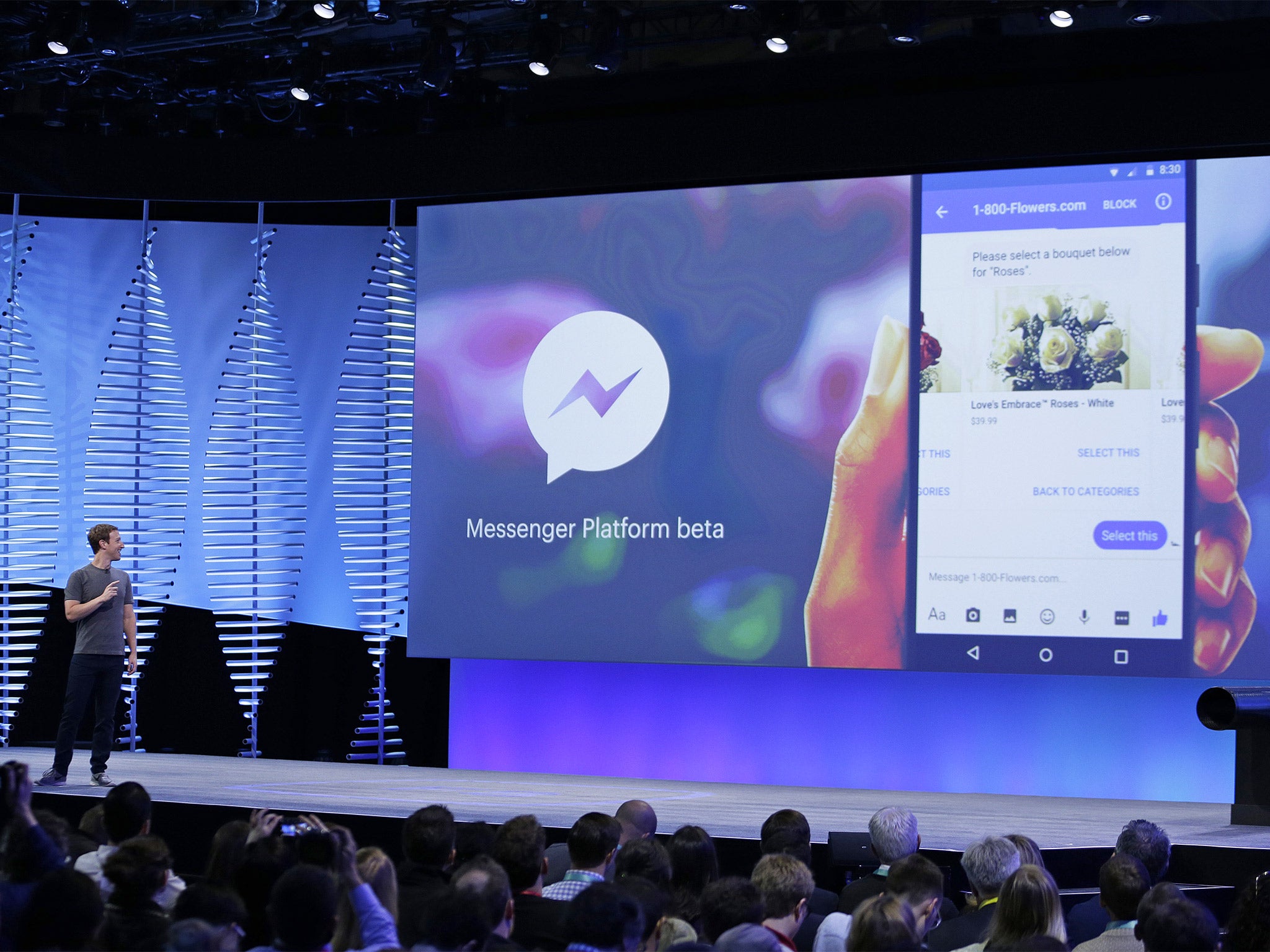Facebook Messenger chatbots: Should we be worried about Mark Zuckerberg's vision for the future?
The Big Question: Is Facebook’s vision of the future of the internet likely to happen? And do we want it to?

Why are we asking this now?
Facebook has spent a lot of time and money on pitching chatbots as the future of the internet. And the app’s huge clout means that when Facebook talks about the internet, everyone who uses it should listen.
Haven’t we tried chatbots before? Weren’t they rubbish?
We have – chatbots have been around about as long as chat apps have. But what makes the difference this time around is two-fold: the huge rise of messaging platforms, and development in AI.
The increase of the use of direct messaging, which can be seen the huge rise of platforms like WhatsApp, has led to people putting more and more of their lives into those apps. People successfully use them to read the news and talk to companies, as well as talking to their friends – and Facebook has been very keen on developing Messenger as a platform for organisations and developers, too.
The other, perhaps far more significant, development is the growth in the power of artificial intelligence. Using a whole host of technologies, robots have become far more clever in the last few years – making them able to deal with people’s conversations as well as just performing simple tasks.
Much of that technology doesn’t seem to have filtered through to the bots yet, which mostly use multiple choice questions and are still watched over by humans. But the technology is ready to make them important, rather than just fun.
Is it really the future of the internet?
Lots of people have claimed to have seen what our computers are going to be like in the coming years, and almost all of them are wrong.
So the predictions that chatbots will replace apps might be overblown – or not come to fruition for some time. But it is probably true that chatbots are going to change the look of the internet, if only because every company is working so hard to create them.
Should we be worried?
As with every Facebook announcement, a bit of scepticism should follow every announcement. Facebook makes money from advertising – so many of the features that it makes will inevitably lead back to how it will be used for that purpose.
Facebook has already said that the tool will be used to generate money. Companies will be able to pay to send messages to users, popping up between conversations with their friends to remind them about something they Liked but never bought, for instance.
But there’ll also be limits on that same power. Chatbots won’t be able to speak to people who haven’t shown interest already, and users will be able to block the bots so that they never hear from them again.
Facebook is aware that people don’t like adverts. As such, it’s been walking back some of the more annoying or egregious examples of them in its own app as well as those like Instagram that it owns.
"It's a very high-quality, personal environment," said Facebook vice president Marcus in an interview. "We want to keep it that way."
The site can only use its Messenger app to sell things to people if those same people want to use its Messenger app. So perhaps users should be worried about Facebook’s plans for chatbots – but the best thing they can do if they are is make Facebook worried about them, too.
Join our commenting forum
Join thought-provoking conversations, follow other Independent readers and see their replies
Comments
Bookmark popover
Removed from bookmarks